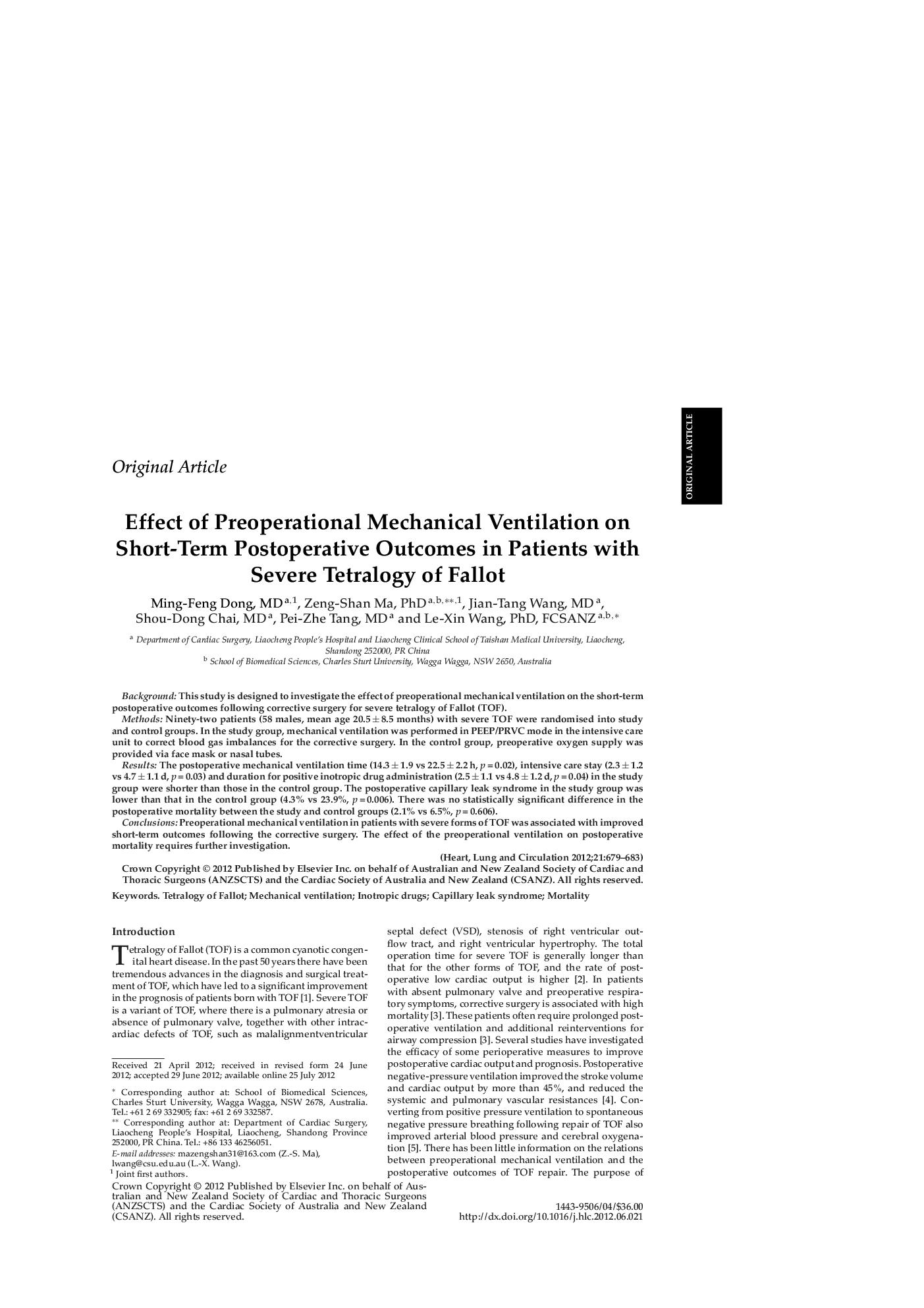| Article ID | Journal | Published Year | Pages | File Type |
|---|---|---|---|---|
| 2919221 | Heart, Lung and Circulation | 2012 | 5 Pages |
BackgroundThis study is designed to investigate the effect of preoperational mechanical ventilation on the short-term postoperative outcomes following corrective surgery for severe tetralogy of Fallot (TOF).MethodsNinety-two patients (58 males, mean age 20.5 ± 8.5 months) with severe TOF were randomised into study and control groups. In the study group, mechanical ventilation was performed in PEEP/PRVC mode in the intensive care unit to correct blood gas imbalances for the corrective surgery. In the control group, preoperative oxygen supply was provided via face mask or nasal tubes.ResultsThe postoperative mechanical ventilation time (14.3 ± 1.9 vs 22.5 ± 2.2 h, p = 0.02), intensive care stay (2.3 ± 1.2 vs 4.7 ± 1.1 d, p = 0.03) and duration for positive inotropic drug administration (2.5 ± 1.1 vs 4.8 ± 1.2 d, p = 0.04) in the study group were shorter than those in the control group. The postoperative capillary leak syndrome in the study group was lower than that in the control group (4.3% vs 23.9%, p = 0.006). There was no statistically significant difference in the postoperative mortality between the study and control groups (2.1% vs 6.5%, p = 0.606).ConclusionsPreoperational mechanical ventilation in patients with severe forms of TOF was associated with improved short-term outcomes following the corrective surgery. The effect of the preoperational ventilation on postoperative mortality requires further investigation.
